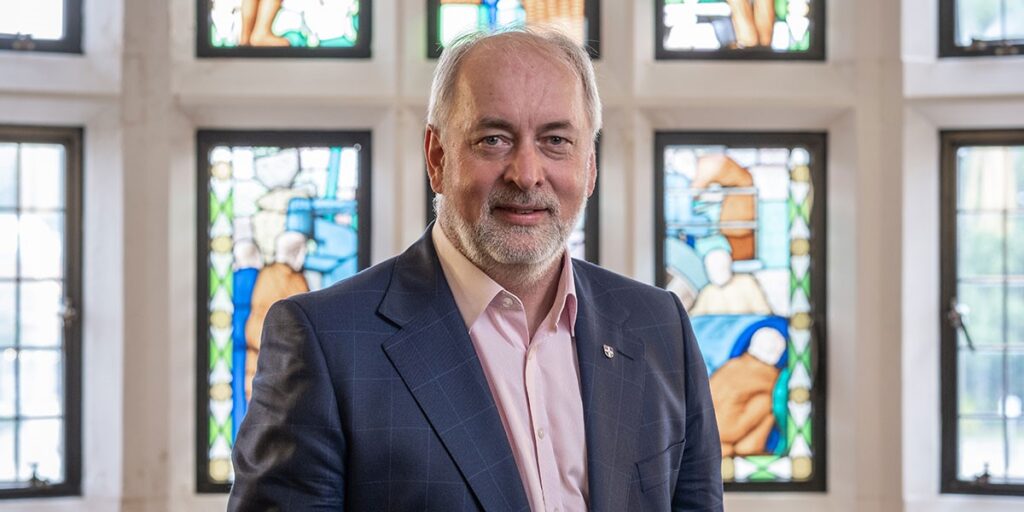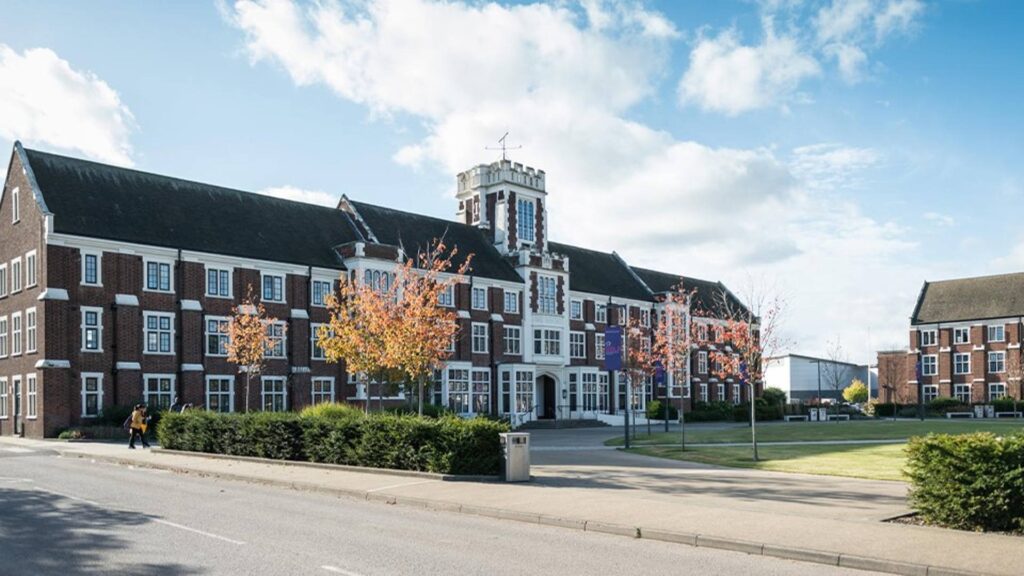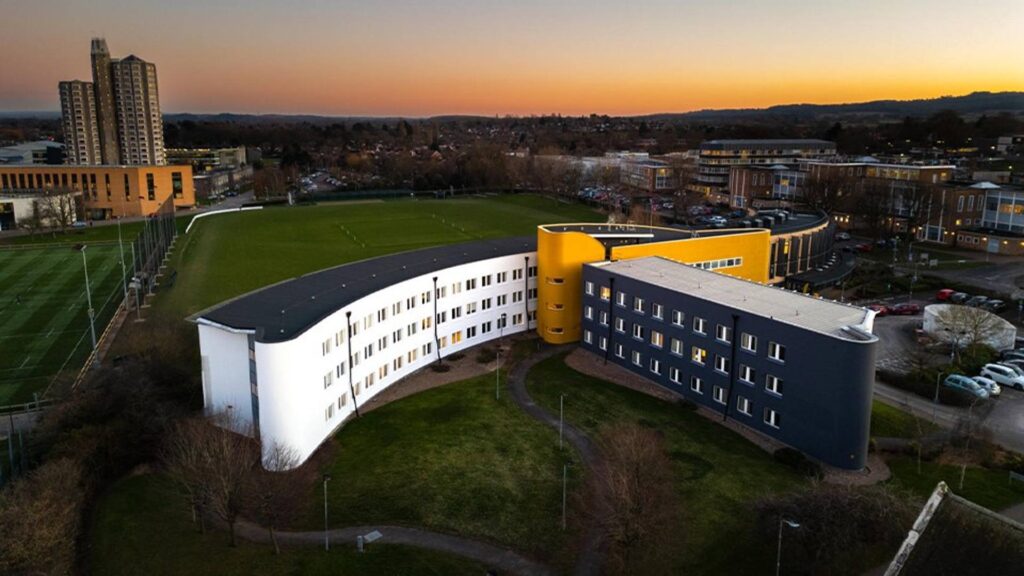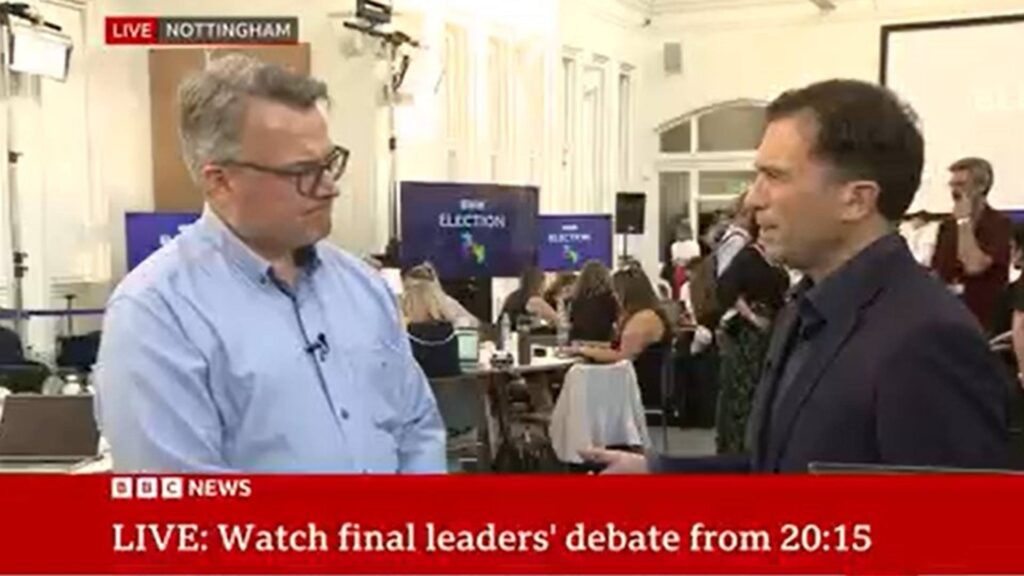From the Vice-Chancellor – June 2024

In my June newsletter: the Sport and EDI core plans, the THE Impact rankings, the new hub of the MIT Global SCALE Network, our largest-ever research grant of £57m to STEER, our delegation to West Africa, and analysis of the General Election media coverage.

Final two core plans approved
At its meeting yesterday, University Council approved the final two strategic core plans for Sporting Excellence and Opportunity, and Equity, Diversity and Inclusion (EDI). Thank you to everyone who contributed to their development, and particularly to Professor Jo Maher, the Pro Vice-Chancellor for Sport, Richard Taylor, who is acting lead for the EDI core plan, and Veronica Moore, Director of EDI Services, who have all been instrumental in pulling the finalised plans together.
The Sporting Excellence and Opportunity core plan is centred on a vision to use our world-class research and performance to enhance the experience of athletes across sport globally, to leverage external opportunities, and to create more opportunities for our students and community to access sport and develop their talent. The plan is themed around five strategic priorities: ecosystem, sustainability, women’s sport, para sport and disability sport, and the power of AI and digital.
The EDI core plan sets out a vision, guiding principles and our heightened EDI ambitions for the University, including a commitment to anti discriminatory practice. Its four objectives are focused on: improved data to better inform our objectives and activities; tackling structural inequity that is embedded in our processes and practices; putting in place interventions that improve diversity with anti-discriminatory practice; and creating a vibrant and inclusive community.
Both the sport and EDI core plans have clear key performance indicators, which will measure our progress towards our objectives.
The EDI plan also includes the governance and management structures we will need to deliver the plan. Since we launched our University Strategy two years ago, I believe we have made good progress with our EDI priorities and it is imperative that we continue to build on the foundations we now have begun to put in place. With our EDI objectives now clearly outlined in the core plan, we have decided to take our time to carefully consider the senior leadership that we believe will be required to drive our EDI activity through this next phase. I will provide a further update in a future edition of my newsletter.
University performs well against UN Sustainable Development Goals
The Times Higher Education (THE) Impact Rankings, which are published each year, recognise universities’ commitment to addressing the world’s most pressing challenges, including environmental sustainability, social inclusion, economic growth and partnerships. They are an international assessment of universities’ performance in moving forward the United Nations’ 17 Sustainable Development Goals (SDGs) – a universal call to action to end poverty, protect the planet, and ensure shared peace and prosperity for all by 2030.
I was delighted, therefore, that Loughborough was ranked first in the UK and Europe, and 7th globally, for SDG8 – advancing Decent Work and Economic Growth. SDG 8 is focused on sustained, inclusive and sustainable economic growth, full and productive employment and decent work for all. We also ranked 54th globally for SDG 10 – Reduced Inequalities – and 57th globally for SDG 15 – Life on Land.
Loughborough’s success in the THE Impact Rankings is testament to our world-leading research and the way we manage our buildings, campuses and activities. Our performance reflects many aspects of our strategy, but particularly the Vibrant and Inclusive Communities, and the Climate Change and Net Zero themes.
The work by the Centre for Research in Social Policy (CRSP), for instance, on the Minimum Income Standard (MIS) clearly contributes to SDG8. It has been used to set the Real Living Wage in the UK, underpins the Retirement Living Standards, and is used by organisations around the UK and increasingly overseas to tackle issues around poverty, living standards and income adequacy.
And as an employer, the University is committed to fair pay and working practices and is an accredited Real Living Wage employer – the only UK wage rate based on the cost of living.
Our Aftrak project meets several SDGs, including the one related to Reduced Inequalities. Loughborough’s researchers are working to provide rural communities across Africa with access to clean, green electricity to increase crop yields and the incomes of smallholder farmers who play a critical role in the continent’s food and energy security and its economic growth. By providing them with access to reliable, sustainable energy and advanced agricultural tools, our aim is to transform lives, communities and the future of agriculture in Africa.
And the Life on Land SDG recognises the way we manage our campuses. For instance, both our sites, in Loughborough and on the Queen Elizabeth Olympic Park in London, retained their Green Flag status in the most recent round of awards. These awards acknowledge high-quality, well-managed green spaces that benefit people’s health and wellbeing.
Congratulations to all those involved in research, projects and the day-to-day management of our campuses that have contributed to our success in this important league table.

Loughborough named as UK hub of prestigious global network
Working in partnership with others has long been one of Loughborough’s core strengths. We work with companies on the development and delivery of some of our teaching programmes; our students and staff work closely with industry on projects; and we collaborate with some of the world’s leading universities on pioneering research. Strong partnerships with great organisations and institutions are central to all that we do, and intensifying and expanding our collaborations is the cornerstone of our strategic Partnerships core plan.
Massachusetts Institute of Technology (MIT) – the world’s top-rated university in the global QS rankings – is a perfect example. Loughborough has worked for many years with MIT, particularly on engineering collaborations, and this month our links with them broadened further, when we signed an agreement to establish the UK Supply Chain Excellence Centre, within Loughborough Business School.
This will be the UK hub of MIT Global Supply Chain and Logistics Excellence (SCALE) Network. The MIT Global SCALE Network was established in 2003 with the inauguration of the Zaragoza Logistics Center in Spain. Since then, it has expanded to include centres in Colombia, Luxembourg, China, and now the UK.
The centres bring together industry and academia to pool their expertise and collaborate on research projects that address real-world supply chain and logistics challenges, helping companies worldwide navigate an increasingly complex business environment. Organisations that partner with the MIT Global SCALE Network gain unparalleled access to expertise, innovative research, and a unique forum for knowledge exchange. The centres also offer postgraduate-level programmes focused on supply chain management, which enable students to benefit from engagement with global industry and collaborative opportunities.
Our inclusion in the MIT Global SCALE Network reflects our exceptional research capabilities, our commitment to supply chain innovation and the education of the next generation of supply chain leaders. It’s a hugely exciting initiative and a major opportunity for us to become the UK centre of this prestigious network.
Largest ever research grant awarded
This month, the University’s Climate Compatible Growth (CCG) programme, which is part of STEER (the Sustainable Transitions: Energy, Environment and Resilience Centre), received an additional £57 million grant from the UK Government, building on its initial £38 million award. The grant, which is our largest ever research funding award, will extend the CCG programme by a further five years to accelerate the roll-out of improved, climate resilient infrastructure in sub-Saharan Africa and the Global South.
CCG is one of the University’s flagship projects in terms of its contributions to addressing global challenges associated with climate change, aligning firmly with our Climate Change and Net Zero strategic theme. The team’s work is leading to transformative and innovative approaches that unlock finance that drives investment in, for example, electricity networks, grid decarbonisation and low carbon transport. These investments ultimately improve lives and livelihoods and are a catalyst for reducing inequalities and tackling poverty in communities.
For example, since their establishment, CCG has created Starter Data Kits for more than 70 countries, equipping partners, consultancies, national investment analysts and academics with essential data to inform national decarbonisation strategy development. The Kenyan and Ugandan governments are also now using CCG planning tools to develop their long-term national energy strategies.
The extension of the CCG programme to 2030 will enable lower- and middle-income countries in sub-Saharan Africa and the Global South to use their universities to cultivate the skilled workforce essential for accelerating sustainable economic growth. Working with national and international research partners, CCG will deliver the economic tools and decision support frameworks needed to make green transitions possible in countries in its partner countries, which will now also include Nepal and Malawi.
Overseas delegation builds relationships in West Africa
At the start of the month, colleagues and I undertook our third overseas delegation of this year, travelling to Ghana and Nigeria to enhance and expand our research, education and alumni partnerships.
At meetings with government, university and industry representatives in Ghana and with the Nigerian State Government and staff from the University of Lagos, we explored how we can harness our collective knowledge and expertise to address local and global issues that will make a real difference to people’s lives.
I was able to cite two powerful examples that are already making a tangible difference – the Aftrak project and the work of our Modern Energy Cooking Services (MECS) team, who are working with local partners across the region to accelerate access to cleaner methods of cooking. The MECS researchers have entered into a partnership with the Nigerian Council on Climate Change to assess the readiness for the mass scale up of electric cooking. They have also worked with local chefs in Ghana to develop a Ghana eCookbook to show the possibilities of cooking with electricity, which is up to four times cheaper than using LPG or charcoal.
At the University of Ghana I joined Professor Amanda Daley and Dr Hibbah Osei-Kwasi from the Centre for Lifestyle Medicine and Behaviour to see how our researchers are working in partnership with academics, clinicians and public health specialists in Ghana to identify interventions and policies that will help to prevent, treat and manage non-communicable diseases.
At the University of Lagos I gave a presentation on my personal area of research, Artificial Intelligence, which will enhance the way we teach and support our students and transform the way we undertake research.
And at reception evenings in both countries I was able to meet some of our alumni based in those countries, as well as some potential future students who hold offers to study at Loughborough. Overseas trips such as these, which enable us to reinforce and further our international partnerships and networks, allow us to advance our international reputation and profile – a key aim of our University strategy. Thank you to all those who organise and support these important visits.

Loughborough researchers analyse General Election coverage
Coverage of the upcoming General Election has been a constant presence in the media over the past few weeks, and once again, as they have since 1992, our academics from the Centre for Research in Communication and Culture have been conducting news audits of the main media outlets.
Their reports provide week-by-week measurements of which politicians and parties are receiving the most coverage, the proportion of negative and positive sentiment, which issues are gaining greatest prominence, and the amount of overall coverage being given to the election.
According to their latest report, tax had emerged as the top policy issue being covered, securing 12% of TV and press coverage over the first three weeks of the parties’ campaigns – double the amount of coverage for the next ranked topic (economy and business). Health and the NHS has secured only 5% of coverage, with the environment and education scraping just 2%.
The researchers’ work has itself generated media interest, being referenced by the ‘Peston’ programme on ITV, the BBC Radio 4 ‘Media Show’ and in The Economist. Research such as this contributes to Project Reputation, through which we will enhance Loughborough’s national and international global reputation as a leading institution – one of our key strategic objectives.
Vice-Chancellor's Communications
Opinions and comment from the Vice-Chancellor, Professor Nick Jennings

